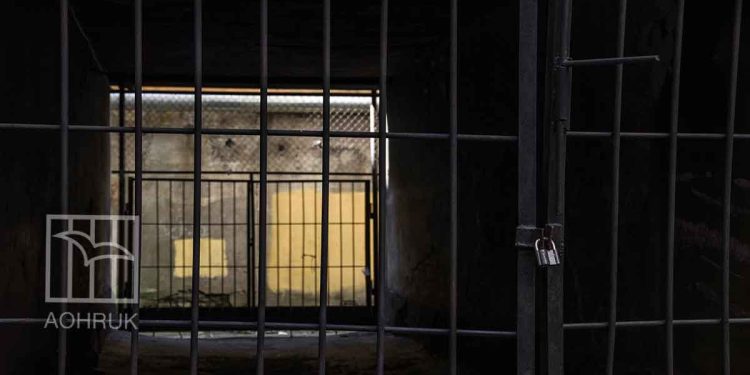A family of four siblings, including two women and an epileptic patient, filed a complaint to the Egyptian Attorney General, Counsellor Mohamed Shawky Ayyad, and sent telegrams to the Ministry of Justice and the Ministry of Interior, demanding the disclosure of their place of detention.
The four detainees have been forcibly disappeared for more than 35 days, which raises deep concerns of their wellbeing, as they might be subjected to serious violations and torture.
According to the family, these arbitrary arrests began on November 13, when a security force stormed the house of Abdel Rahman Hamdi Khater, 31, in the Imbaba area of Giza Governorate, broke the main door of the house and took him with his sister, Omama Hamdi Khater, 25, who works as a Quran teacher, without providing any arrest warrants.
Their mother confirmed that the security forces promised to release them quickly after a quick investigation, but they have not returned yet. She stated that Abdel Rahman suffers from epilepsy, which increases the family’s concern about his health condition.
On November 22, a security force stormed the home of the third sister, Khadija Hamdi Khater, 27, in the Matariya in Cairo while she was absent. The security men asked the family members to bring her to the Matariya Police Station, claiming that there is a complaint filed against her. When Khadija went there voluntarily, they confiscated her phone, the station later denied her presence, and she has not been referred to any investigative body to date.
On December 11, a security force stormed the home of the fourth brother, Talha Hamdi Khater, 29, in Imbaba, where he was arbitrarily arrested and taken to an unknown location. Since then, he has been disappeared and has not been referred to the prosecution or any legal body.
The family confirmed that all four siblings enjoy a good reputation and are not involved in any political or opposition activities. The family is expressed serious concerns that their children may be subjected to torture or that criminal cases may be fabricated against them.
The family appealed to the Public Prosecutor and the relevant authorities to reveal the place of detention of their sons, and enable them to exercise their legal rights, including contacting their lawyers and presenting them to the competent investigative authorities.
This case indicates the widespread enforced disappearance in Egypt, which represents a serious violation of human rights, and to which the Egyptian authorities must assume their legal and moral responsibilities in protecting its citizens, and ensuring that those involved in these crimes are held accountable.





























